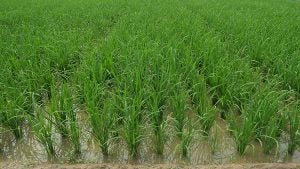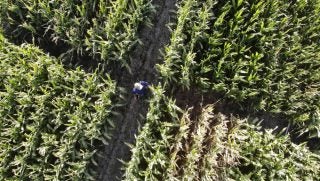It has been over a year since a ruling in the Philippines found that Golden rice is safe for consumption, and anticipation has been brewing for the island nation to approve it for planting. Now, Dr. John C. de Leon, executive director of the Department of Agriculture Philippine Rice Research Institute (PhilRice), announced that a biosafety permit for propagating the Golden Rice was issued on July 21, 2021.
Filipino rice consumers will benefit from this genetically engineered provitamin A-infused rice variety thanks to this approval of its commercial propagation permit.
This biosafety approval of Golden Rice is the first authorization for commercial propagation of a genetically engineered rice in South and Southeast Asia. With this permit, Golden Rice can now be planted for commercial production as per the terms and conditions specified by the Department of Agriculture’s Bureau of Plant Industry. Prior to marketing, Golden Rice will need varietal registration by the National Seed Industry Council, which approves the registration of all new varieties based on consistent good agronomic field performance.
With its potential to provide a significant amount of provitamin A in the diet, Golden Rice can be an effective complementary approach to achieving availability, affordability, and accessibility of quality and nutritious rice for all Filipinos. De Leon said that they aim to deploy the beta-carotene enriched rice in partnership with appropriate agencies through market-based and programmatic approaches in areas where the prevalence of vitamin A deficiency is high.

Golden Rice was developed for humanitarian purposes to help treat vitamin A deficiency. Studies have shown that a one-cup portion of cooked Golden Rice contains enough beta-carotene to meet 30 to 50 percent of the estimated average requirement of vitamin A for children aged 6 months to 5 years, the group most at risk of vitamin A insufficiency in the Philippines. At present, only 2 out of 10 Filipino households meet the estimated average requirement for vitamin A intake in their daily diet.
Since 2005, an estimated 14 million children worldwide have died of Vitamin A deficiency and an estimated 3.5 million to 7 million are permanently blind.
The approval of Golden Rice is a step in overcoming campaigns from anti-agriculture activists like Greenpeace, which worked to convince governments in Asia and Africa that this kind of biotechnology was dangerous to people and the environment. Scores of Nobel Laureates and other scientists have pushed back again Greenpeace’s campaign in an effort to show the value of Golden Rice on food insecure regions of the world.
De Leon said that his agency will be implementing a comprehensive quality assurance and stewardship program that covers all steps in the chain from seed production, to post-harvest processing, to marketing.


